The Young Geotechnical Engineers Conferences evolved from an idea by Professor Atkinson at City University, London, UK, in the 1980s. The Young Geotechnical Engineers Conferences bring together small groups of delegates who are working towards a PhD or Masters degree or are at an early stage of their career in industry or academia and are under the age of 35. Delegates want to connect with other researchers and early career geotechnical engineers and share their experiences.
The Young Geotechnical Engineers Conferences evolved from an idea by Professor Atkinson at City University, London, UK, in the 1980s. The Young Geotechnical Engineers Conferences bring together small groups of delegates who are working towards a PhD or Masters degree or are at an early stage of their career in industry or academia and are under the age of 35. Delegates want to connect with other researchers and early career geotechnical engineers and share their experiences.
Conference goals:
Bringing together young researchers
in the field of geotechnics
International
networking
Exchange of experience
and knowledge
9 September
Registration (opening hours from 6 pm) | Welcome Cocktail
10 September
Registration | Opening Session with Invited Lectures | Oral Sessions | Sponsored Lectures | City Walk in Rijeka
11 September
Technical Visit: Rječina River Valley
Technical Visit: Orehovica Highway Interchange
Geo quiz
12 September
Invited Lectures | Oral Sessions | Sponsored Lectures | Closing Session | Banquet
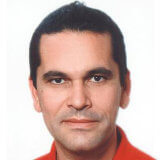
University of Rijeka
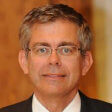
TU Wien
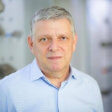
University of Rijeka

University of Salerno

Charles University, Prague
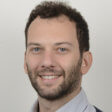
Norwegian Geotechnical Institute
Oslo Metropolitan University

ETH Zurich
As part of the conference programme, two technical field trips will be organised on 11 September 2025. Participants will have the opportunity to choose between a visit to the Rječina River Valley or the Orehovica highway interchange construction site. Both trips offer valuable insights into geotechnical challenges and engineering solutions, with on-site presentations by experts.
Important note:
Participants may choose only one of the two field trips. The number of participants is limited to 25 per trip, so early registration is strongly recommended
The Croatian Geotechnical Society (HGD) is pleased to welcome you to the 29th European Young Geotechnical Engineers Conference in Croatia, from 9-12 September, 2025.
The four-day conference will take place in Rijeka, Croatia at the Faculty of Civil Engineering, on the campus of the University of Rijeka.
We look forward to welcoming you in Rijeka in September 2025.
On behalf of the Croatian Geotechnical Society (HGD)
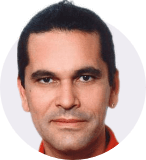
President of the Croatian Geotechnical Society

The Croatian Geotechnical Society (HGD) was founded with the aim of promoting, developing and advancing the profession and technical sciences in the field of geotechnics.
Application and abstract submission deadline: 15 December 2024
Abstract acceptance:
20 January 2025
Paper submission deadline:
6 April 2025
The registration fee is 500 EUR and includes: Accommodation, breakfast, lunch, gala dinner, coffee breaks, conference materials and a technical tour.
Deadline for registration fee payment is 1 July 2025.
For information on submitting papers, conference registration, and information on the venue contact:
Abstract template
Paper template + font
(Please install the included font before editing the template to ensure proper formatting)
Presentation template
(We recommend that you use the template to prepare your presentation. You have 15 minutes total — ideally 12 for presenting and 3 for discussion.)
Final programme
Conference Proceedings
First Call
Assoc. Prof. Martina Vivoda Prodan,
29th EYGEC Symposium Chair,
University of Rijeka
Assoc. Prof. Leo Matešić,
President of Croatian Geotechnical Society,
Geokon Zagreb, University of Rijeka
Assoc. Prof.Sanja Dugonjić Jovančević,
University of Rijeka
Assoc. Prof. Vedran Jagodnik,
University of Rijeka
Assoc. Prof. Josip Peranić,
University of Rijeka
Asst. Prof. Petra Jagodnik,
University of Rijeka
Davor Marušić, assistant,
University of Rijeka
Prof. Krunoslav Minažek,
Secretary of Croatian Geotechnical Society
University of Osijek
Assoc. Prof. Goran Vlastelica,
University of Split
Assoc. Prof. Lovorka Librić,
University of Zagreb
Sonja Zlatović, PhD,
Croatian Geotechnical Society
Asst. Prof. Igor Sokolić,
Treasurer of Croatian Geotechnical Society, Geotehnički studio, University of Osijek
The conference will take place at the Faculty of Civil Engineering, University of Rijeka, Trsat Campus, Radmile Matejčić 3, Rijeka, Croatia.
The Rijeka Airport is situated on the island of Krk which is connected to the mainland by the Krk Bridge. The airport is about 27 km from Rijeka city centre. Airport has organized an official regular shuttle service from/to Rijeka bus station. It takes approximately 40 minutes to reach the city of Rijeka by bus (http://rijeka-airport.hr/en/bus).
There are also several other airports that can be reached relatively easily from Rijeka. Franjo Tuđman Airport (175 km from Rijeka) offers flights to all major cities in Europe. It is possible to take a direct bus from/to Zagreb Airport to/from Rijeka once every day (https://plesoprijevoz.hr/en/rijeka-croatia/). It takes about 2 hours to reach Rijeka by bus and the buses are generally comfortable. Alternatively, you can take the shuttle bus from Zagreb Airport to the Zagreb main bus station, which runs once every half hour (https://plesoprijevoz.hr/en/time-table/). There are many buses connecting Zagreb and Rijeka, operated by different companies (https://getbybus.com/en/bus-zagreb-to-rijeka).
Other airports close to Rijeka are: Pula (97 km from Rijeka), Brnik (Ljubljana, Slovenia) (138 km from Rijeka), Ronchi dei Legionari (Trieste, Italy) (112 km from Rijeka) and Marco Polo and Treviso Airport (Venice, Italy) (223 km from Rijeka).
There are several companies that offer regular international bus services between Rijeka and other cities in Croatia and major cities in Europe https://getbybus.com/en/bus-from-rijeka and https://global.flixbus.com/.
You can reach Rijeka from Zagreb, the capital of Croatia, in about 4,5 hours. Please see https://www.hzpp.hr/en. There are also direct trains daily to Rijeka from Ljubljana and connection with transfers from Slovenia, Austria, Germany, Switzerland.
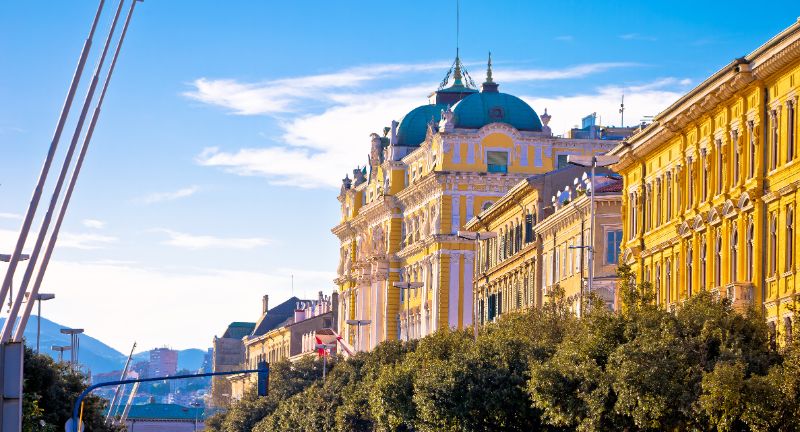
With its 200,000 inhabitants, Rijeka is the third largest city and the largest Croatian port. It is located on the…
Read more

The Faculty of Civil Engineering was established in 1969. Currently, about 800 students study at the Faculty…
Read more
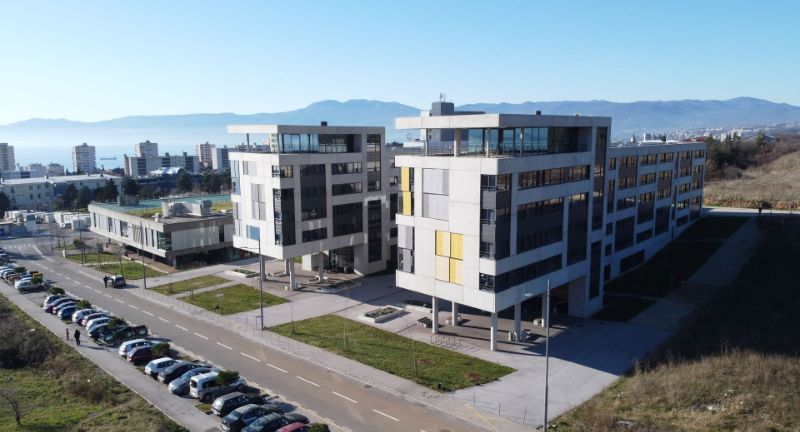
Student dormitories will be available for conference participants. They are a few minutes walking distance from…
Read more
When?
WHERE?
Radmile Matejčić 3, 51000 Rijeka, Croatia
Like the previous valuable conferences, the Rijeka event aims to create a solid foundation for young European geotechnical engineers to establish contacts and promote long-term cooperation.
From the abstracts received, each national society is encouraged to nominate two M.Sc. or PhD students to attend the conference, with the possibility of nominating additional candidates. Candidates apply for the conference and send an abstract by 15 December 2024 to the following e-mail: eygec2025@gradri.uniri.hr
Selected candidates will receive notification of abstract acceptance by 20 January 2025. Full papers will be sent to the organizing committee by 1 April 2025. The review process will be carried out by the national societies. Papers will be accepted by the National Committee and the Conference Organizing Committee on 20 June 2025.
Hrvatsko geotehnicko drustvo,
Berislaviceva 6, 10000 Zagreb, Croatia
OIB: 87896616668
Bank: Zagrebacka banka, Trg Bana Josipa Jelacica 10, Zagreb, Croatia
IBAN: HR4823600001101437707
SWIFT code: ZABAHR2X
With the note: EYGEC2025, [Participant Name]
With its 200,000 inhabitants, Rijeka is the third largest city and the largest Croatian port. It is located on the Kvarner Bay, in the northernmost part of the Adriatic. Rijeka is close to the Italian and Slovenian borders and is surrounded by mountains and numerous picturesque coastal towns. It enjoys a pleasant Mediterranean climate with exceptionally warm summers and relatively mild winters. In addition to its role as an economic and transport hub, Rijeka continues to be an important cultural, educational and sports centre in the region. In the last century, Rijeka belonged to 12 different states and was a separate state for a time in 1920. This has certainly contributed to Rijeka being one of the most hospitable, open, tolerant and welcoming cities in this part of Europe. It is a modern city that is an excellent place to study, work and live.
Technical Visit:
A one-day technical visit to the Rječina River Valley will take place on 11 September 2025, as part of the conference programme. Located in the hinterland of the City of Rijeka, the Rječina River Valley is a narrow karst valley distinguished by complex geological conditions and a rich natural and cultural heritage. Stretching over 18 km, the Rječina River is the principal watercourse in the Croatian Littoral, playing a vital role in regional water supply and hydroelectric power generation.
The valley’s distinct geological, geomorphological, and hydrological features make it highly susceptible to natural hazards such as landslides, floods, erosion, and earthquakes. During the visit, participants will have the opportunity to explore these dynamic processes in the field and engage in expert-led discussions on the challenges and management of geological risks in karst environments.
Technical Visit:
The technical site visit will cover the reconstruction and extension of a highway interchange, “Orehovica”. The construction site is located in a geologically complex area, where a narrow Paleogene flysch zone is in reverse contact with Cretaceous carbonates, requiring careful geotechnical design and execution. The reconstruction and extension included widening a rock-cut in limestone rock and the construction of a steel overpass on the flysch zone.
The rock-cut widening was carried out through blasting and mechanical excavation. Slope protection and stabilisation measures included the installation of rockfall protection barriers, geotechnical anchors, and mesh systems. A steel overpass, supported by two abutments and one pier, is deepfounded on reinforced concrete piles. Access ramps to the overpass are built using reinforced soil techniques, with concrete blocks interconnected by polymer geogrids to ensure structural stability and load-bearing capacity. During the visit, there will be presentations on the construction phases, focusing on geotechnical challenges and solutions, including slope excavation and protection, and steel overpass foundation works.
University of Rijeka (UNIRI) is the fundamental educational and research institution in the western part of Croatia. Founded in 1973, the University of Rijeka has matured into a modern European university and centre of excellence whose impact extends beyond the region. With a total of 16 faculties, 12 specialized research centres, and over 160 study programmes it is a research, science, and education-oriented university that supports social and economic development in its community.
The Faculty of Civil Engineering was established in 1969. Currently, about 800 students study at the Faculty. The Faculty provides high quality education of professionals in the field of civil engineering and related disciplines. Mission of the Faculty is the education and professional development of academic staff in the field of civil engineering and related technical branches. Faculty mission is also to promote the profession of civil engineering and raise awareness of its importance for sustainable development while promoting academic principles and contributing to the development of the city and the wider region.
The activities of the faculty are:
The continuous development of human resources has ensured the work of currently 85 employees. It is located on the modern university campus in a building with an area of approx. 15,000 m2 with 14 modernly equipped lecture halls, six practical laboratories, three IT cabinets, two rooms for independent student work and five excellently equipped laboratories.
Student dormitories will be available for conference participants. They are a few minutes walking distance from the Faculty of Civil Engineering. Accommodation in student dormitories is included in the registration fee.
The rooms are double and two double rooms share a bathroom, toilet, kitchen, loggia and common areas.

Prof. Dr. Dietmar Adam is the Head of the Institute of Geotechnics at TU Wien and its Ground Engineering, Soil and Rock Mechanics Research Unit, as well as the Head of the Soil Mechanics Laboratory – the lab that was founded by the “father of soil mechanics and geotechnical engineering”, Professor Karl von Terzaghi. With a remarkable portfolio of over 1,000 civil, geotechnical, and environmental engineering projects across 40+ countries, pioneering research initiatives, numerous patents secured, 380+ publications authored in international journals and conference proceedings, over 280 delivered invited keynote and special lectures in nearly 80 countries, and ground-breaking contributions in the field of soil dynamics, compaction technologies, ground improvement, innovative geo-materials, railway tamping and track stabilization, ground freezing, and thermo-active foundations and energy geostructures, he has an indelible mark on the evolution of soil mechanics and geotechnical engineering, and beyond.

Assistant Professor at the Institute of Hydrogeology, Engineering Geology, and Applied Geophysics, Faculty of Science, Charles University, Prague, and current President of the Czech National Group of the International Association for Engineering Geology, Dr. Gianvito Scaringi is renowned for his contributions to the field of coupled processes in geomaterials, especially chemo-mechanical and thermo-hydro-mechanical coupling in clays. Combining advanced experimental and modeling techniques, his research addresses critical challenges in engineering geology and geotechnics, including slope stability, landslide dynamics, soil-vegetation-atmosphere interactions, geological disposal of radioactive waste, underground thermal energy storage, and energy geostructures.

Senior Researcher at the Norwegian Geotechnical Institute (NGI) and Associate Professor at Oslo Metropolitan University (OsloMet), Dr. Luca Piciullo is an expert in slope stability, early warning systems, and tailings dam analysis with extensive experience in various countries, including Norway, Italy, and Brazil. He actively contributes to international scientific committees and projects, is a member of the TC221 – Tailing and Mine Waste – of the ISSMGE, and an author of numerous papers in international journals and conferences. His engineering projects encompass a wide range of topics, including hydrogeological studies, risk assessment for earth structures and natural hazards, tailings dams and slope stability analysis, and digital twinning and Internet of Things technologies. In addition to his academic and research contributions, he is also actively involved in relevant international consulting jobs.

Assistant Professor in the Department of Earth and Planetary Sciences at ETH Zurich and Chair of Engineering Geology, Dr. Jordan Aaron’s work focusses on understanding landslide phenomenon through a combination of field monitoring and modelling. His work on this topic has been recognized through numerous awards and grants, including the 2017 Michael Bozozuk Award from the Canadian Foundation for Geotechnique, and the 2019 Norman Medal from the American Society for Civil Engineers. His innovative research has significantly advanced our ability to understand landslide hazards, and he works with companies and government agencies to put these advances into practice.

Željko Arbanas is a former Full Professor of Soil Mechanics and Geotechnical Engineering at the Faculty of Civil Engineering, University of Rijeka, retiring in 2024. He worked as a geotechnical engineer at the Civil Engineering Institute of Croatia (1986–2010), contributing to and leading over 500 geotechnical reports and more than 300 projects, including foundation design, tunnels, landslide stabilization, and rock slope protection. His current research focuses on landslide investigation and stabilization, monitoring technologies, landslide physical and geotechnical numerical modeling. He is the President of the International Consortium on Landslides (ICL) for the term 2024–2026 and a member of the ISSMGE, ISRM, IAEG, and the Croatian Academy of Engineering. Dr. Arbanas has authored over 270 scientific publications and edited 16 scientific books and conference proceedings. He has participated in more than 50 international conferences, delivering presentations all over the world.

Sabatino Cuomo is a Professor of Geotechnical Engineering at the University of Salerno, Italy. He is the Coordinator of the LARAM School (International School on “LAndslide Risk Assessment and Mitigation”), a core member of JTC1 Natural Slopes and Landslides of FedGIS (Federation of International Geo-Engineering Societies: ISSMGE, ISRM, IAEG, IGS), and a member of the Board of Directors of ALERT Geomaterials (The Alliance of Laboratories in Europe for Education, Research, and Technology). He serves as Associate Editor-in-Chief of Geoenvironmental Disasters Journal (Springer), Associate Editor of the Canadian Geotechnical Journal, and an Editorial Board member of Computers and Geotechnics, Soils and Foundations, Geotechnical Engineering, and Environmental Geotechnics. His research interests include landslide mechanisms, solid-fluid transition, landslide dynamics, regional slope stability, slope erosion, geosynthetic reinforcement, laboratory testing of unsaturated soils, and constitutive modeling. Professor Cuomo has authored over 200 publications in international journals and conference proceedings.

Leo Matešić is an associate professor at the Department of Hydrotechnics and Geotechnics, Faculty of Civil Engineering, University of Rijeka, Croatia, and simultaneously works as a senior consultant at the geotechnical company Geokon-Zagreb d.d. He has many years of professional experience in the preparation and management of geotechnical studies, investigation and design for all construction types: hydrotechnical, transportation, industry, energy and infrastructure construction, building construction, rehabilitation of landslides and other types of special buildings. He began his scientific career with a laboratory, expanding it with field research, the creation of relational databases, and numerical modelling of geotechnical structures. He is a member of several professional national and international societies. He is currently the president of the Croatian Geotechnical Society. He is author on more then 50 papers in the field of geotechnics. He has participated in more than 50 national and international conferences, delivering oral or poster presentations.
IMPORTANT: